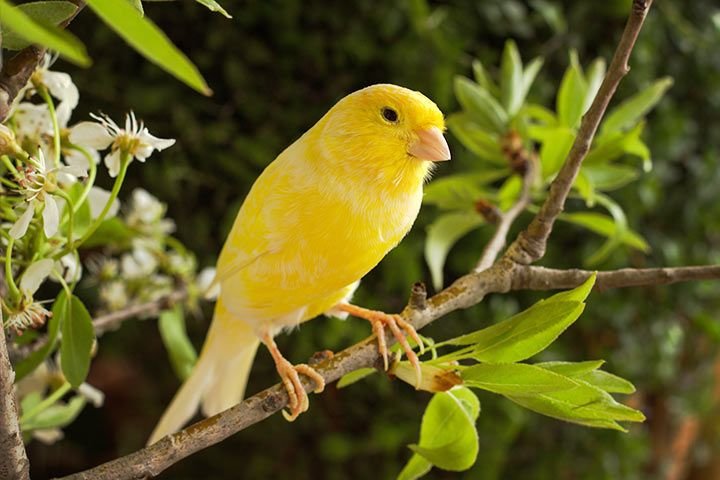
Here’s the thing: owning a canary isn’t just about enjoying its beautiful song. It’s also about understanding its needs and quirks. So, let’s dive into whether canaries are good pets for beginners by weighing the positives and negatives. You might just find that these little birds are everything you’ve been looking for—or maybe you’ll realize they’re not the right fit for your lifestyle.
Understanding Canaries
Canaries are small songbirds originally from the Canary Islands. They belong to the finch family and are known for their vibrant colors, which can range from bright yellow to shades of orange, red, and even white. These cheerful little creatures have been loved as pets for centuries, not just for their beauty but also for their delightful singing.
Most commonly kept as pets, canaries are not overly demanding. They thrive on a balanced diet of seeds, fruits, and vegetables, and they love a clean home. However, it’s important to remember that they’re social creatures. While they can sometimes be kept alone, they usually do better with a companion or a bit of interaction with you.
You might be wondering how much space you need for a canary. They don’t require a huge cage, but it should be spacious enough for them to fly around a bit. A cage that’s at least 18 inches wide is a solid choice for one canary. And don’t forget to give them enrichment, like perches and toys!
Pros of Keeping Canaries
Let’s start with the good stuff. Canaries have plenty of advantages that make them appealing pets for many people, especially beginners.
1. Beautiful Singers
Canaries are famous for their singing ability. Male canaries, in particular, boast beautiful melodies that can lift your spirits and fill your home with music. If you love the idea of having a natural alarm clock or a soundtrack for your daily routine, a canary’s song is hard to beat. The singing varies based on breed, so you might want to do a little research to find the type that suits your taste.
2. Low Maintenance
Compared to dogs or cats, canaries are relatively low maintenance. They don’t need to be walked or groomed, and daily care typically involves changing food and water, cleaning their cage, and offering fresh fruits and veggies. This low-key lifestyle makes them ideal for busy folks or those who may not have a lot of time to dedicate to pet care.
3. Small Space Needs
Living in a tiny apartment? No problem! Canaries don’t require a lot of space. A small cage with adequate ventilation suited for their size will do. Just be sure to place it in a safe spot where they can enjoy some natural sunlight without being too exposed to drafts.
Cons of Keeping Canaries
Now, let’s balance things out with some potential downsides of having canaries as pets. It’s essential to consider these factors so you don’t dive in unprepared.
1. Limited Interaction
While canaries can be charming companions, they’re not like dogs or cats when it comes to affection. They won’t curl up on your lap or come when you call them. Instead, they prefer observing from a distance and will likely be more interested in singing than interacting with you directly. If you’re looking for a cuddly pet, a canary might not meet your expectations.
2. Noise Levels
For some, the sound of a singing canary is pure bliss, but for others, it might be too much. Male canaries can sing quite loudly, especially during mating season, which can be a bit overwhelming in a small space. If you live with someone sensitive to noise or have quiet hours in your home, it’s crucial to consider this aspect before bringing one home.
3. Health Considerations
Like all pets, canaries can face health issues. They’re generally hardy, but respiratory problems can arise, especially if they’re exposed to drafts, smoke, or poor air quality. Regular vet check-ups can help catch any issues early, but that might be an additional responsibility for you as a pet owner.
Canaries and Socialization
Canaries are social birds, but their social needs are quite different from more interactive pets. They thrive in environments where they are not isolated. While some canaries can live happily alone, many do best with a companion.
You might find that having two canaries can lead to delightful chirping duets and lively interactions. Just be cautious of space; two males may fight if housed together. A pair of a male and female can work well, but be ready for the possibility of babies.
For many owners, simply watching their canary can become a joy. Providing environmental stimulation, like mirrors and climbing toys, can add excitement to their lives. Remember, while they’re not lap pets, they still need engagement.
Nutrition and Care Tips
Canaries have specific dietary needs that are critical to their health and happiness. They thrive on a balanced diet, so it’s essential to provide a mix of high-quality seeds, fresh fruits, and vegetables.
1. Seed Mixes
A quality seed mix is a staple in a canary’s diet. Look for blends that include various seeds like canary grass seed, hemp seed, and flaxseed. You can find them at pet stores or online. Just make sure to avoid seed blends that are high in fillers.
2. Fresh Food
Supplementing their diet with fresh fruits and vegetables is a must! Greens like spinach, kale, and broccoli are excellent choices, along with fruits like apples and carrots. Make sure to wash them thoroughly and cut them into small, manageable pieces.
3. Clean Water
Always provide fresh, clean water. Canaries can be sensitive to dirty water, which can lead to health issues. Change their water daily and clean the water dishes weekly to keep things fresh.
Housing and Environment
Creating a comfortable home for your canary is crucial. If you’ve ever felt cramped in a small space, then you know that a canary needs more than just a cage.
1. Choosing the Right Cage
Pick a cage that’s spacious enough for flying. A cage that’s wider than it is tall is ideal, as canaries love to flit from perch to perch. Look for a cage with horizontal bars so your bird can climb easily.
2. Enrichment and Toys
Add perches, toys, and even a few natural branches to keep your canary entertained. They love to explore and play, so having a variety of textures helps stimulate their curious minds. Just be sure that any toys are safe for birds—avoid anything with small parts they can swallow.
3. Location Matters
Find a good spot for your canary’s cage. It should be in a well-lit area but not in direct sunlight all day. Avoid places with drafts or high traffic, as both can cause stress for your new pet.
In the end, whether canaries are good pets really depends on what you’re looking for. If you want a cheerful, low-maintenance companion that fills your space with beautiful songs, they might just be the perfect fit. On the other hand, if you’re seeking a pet that requires more interaction and cuddles, you might want to consider another option.
Exploring the joys of canary ownership can be rewarding. Just remember, they’re not just pretty singers—they’re living creatures with specific needs and personalities. By weighing the pros and cons, you’ll be better equipped to decide if a canary is the right pet for you. Enjoy your adventure!

